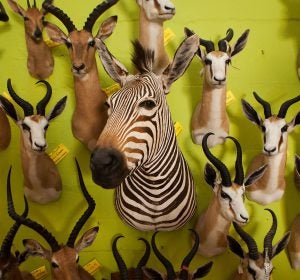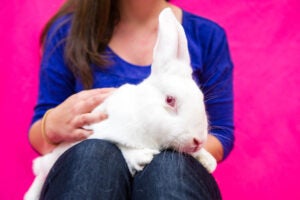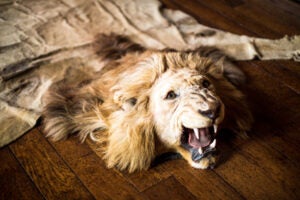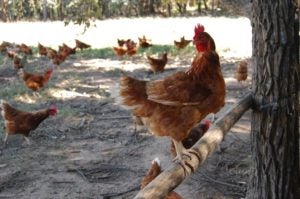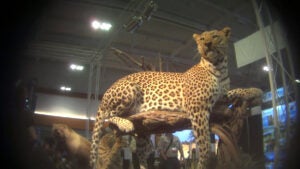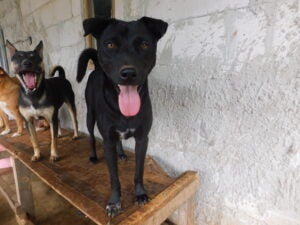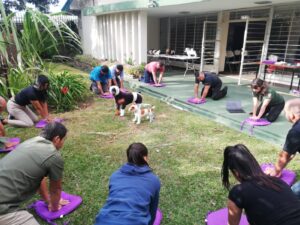
*Editor’s note: This text has been updated to reflect that the Budget Implementation Act (Bill C-47) has now officially been tabled in Canadian Parliament.
OTTAWA, Ontario—The Canadian government has today tabled measures through the Budget Implementation Act that would prohibit testing cosmetics on animals in Canada. The amendments would also prohibit selling cosmetics that rely on new animal testing data to establish the product’s safety and false or misleading labelling pertaining to the testing of cosmetics on animals.
Animal protection advocates Humane Society International/Canada, Animal Alliance Canada and Cruelty Free International, along with Cosmetics Alliance Canada, Lush Cosmetics and The Body Shop have been working closely with the Canadian government for several years to advance the legislation and issued the following statements:
Michael Bernard, deputy director, Humane Society International/Canada, said: “A decade of campaigning by Humane Society International/Canada and our partners is giving the Canadian beauty sector a cruelty-free makeover. We have been honoured to work closely with the Canadian government and all stakeholders to advance these measures over the years, and we are delighted to see Canada introduce this historic legislation to ban cosmetics animal testing and trade. When this bill becomes law, Canadian consumers can be assured that the cosmetics they purchase have not come as a result of animal suffering—and that is something we can all feel good about.”
Darren Praznik, president and CEO of Cosmetics Alliance Canada, said: “Industry and animal protection advocates have worked together over the last several years to advance a cosmetics animal testing ban in Canada. Since this issue was first raised in Parliament through a Private Member’s Bill in the Senate in 2015, our group has met frequently to build a collaborative relationship and to align on the principles with Health Canada while ensuring the ban works within the Canadian regulatory framework. We are very pleased to see the government bring forward this long overdue legislation.”
Liz White, director, Animal Alliance of Canada, said: “Animal Alliance supporters thank Minister Duclos and Health Canada staff for making the cosmetic animal testing ban a reality. Canada will join the growing number of countries worldwide that have ended such practices and the government will fulfill its promise to introduce legislation to end cosmetic testing on animals as soon as 2023.”
Monica Engebretson, head of public affairs North America, Cruelty Free International, said: “Cruelty Free International applauds this renewed effort to bring an end to animal testing for cosmetics across Canada. This is a unifying issue that has earned cross-party support in Canada and will match the progress we are seeing around the world as consumers, companies, regulators, and advocates come together to achieve a common goal of ensuring that animals won’t suffer for the sake of cosmetics anywhere.”
Brandi Halls, chief ethics officer, Lush Cosmetics North America, said: “As a company who has been campaigning to bring animal testing for cosmetics to an end since our inception over 25 years ago, today we join animal rights campaigners and animal lovers to celebrate this important moment for the global movement. By heeding the call of people across Canada, Minister Duclos and Health Canada are putting Canada on the right side of history ending this ineffective, inhumane and outdated practice. We’re proud to have partnered with HSI for over a decade and through customer responses to our in-shop campaigning, we know that the voice of the majority has been heard.”
Hilary Lloyd, VP of marketing and corporate responsibility, The Body Shop North America, said: “The Body Shop applauds Minister Duclos and Health Canada for their work in bringing forth this legislation. As a leader in cruelty-free beauty, we’re celebrating this milestone and reflecting on the passionate hard work from our retail teams and activist customers that delivered over 625,000 signatures to Parliament Hill in 2018 asking to end cosmetic animal testing. An important reminder that businesses have a responsibility in being a force for good. We encourage other governments around the world to follow suit.”
ENDS
Media contacts:
- Michael Bernard, HSI/Canada, deputy director: 438.873.5769; mbernard@hsi.org
- Susan Nieuwhof, Cosmetics Alliance Canada, public policy and communications: snieuwhof@cosmeticsalliance.ca

